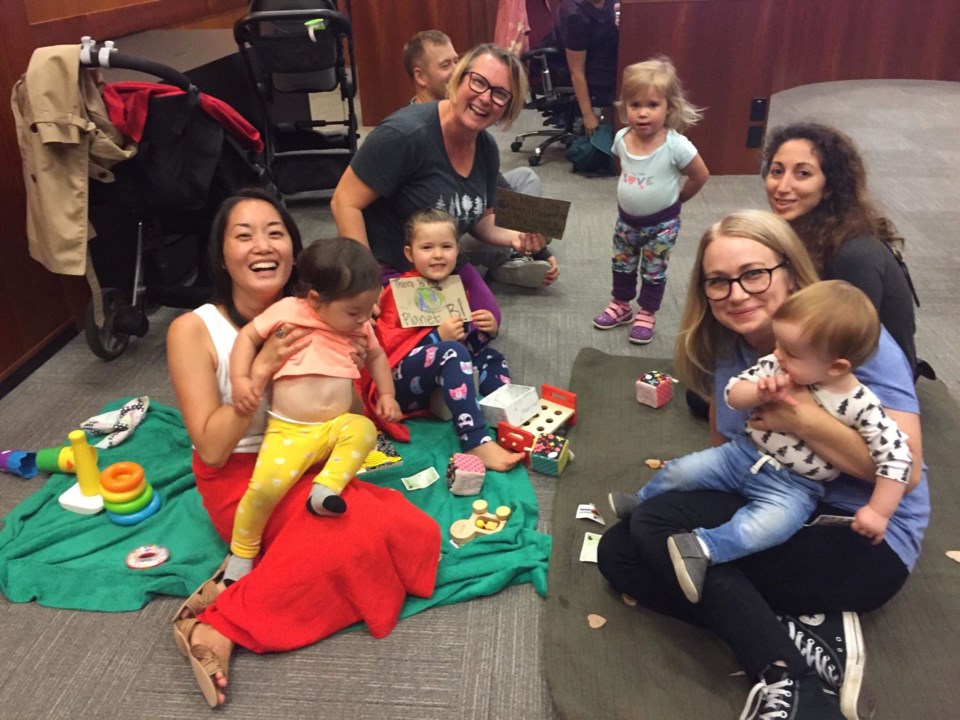New Westminster is considering ways it can create a more welcoming and inclusive place for all citizens.
On Monday night, council approved a motion by Coun. Nadine Nakagawa to direct staff to report back to council on opportunities to make the city more welcoming and inclusive. Staff will also consult with city committees and the public on ways to make the city more welcoming.
The motion approved by council listed some of the potential steps the city could take to become more welcoming, including: ensuring council chambers meets the needs of people with disabilities; creating a dedicated space in council chambers for families with young children, including toys and areas for children to move around; and offering childminding services so parents and caregivers can attend council meetings and public consultation events and can serve on civic committees. Other ideas to be explored include: taking council meetings into different neighbourhoods; offering access to translation services, by request, for city meetings and public hearings; making council agendas easier to read; providing a Council Meeting 101-type workshop for the public; creating gender-inclusive washrooms for all existing single-stall washrooms in civic facilities; creating an acronym key for all city documents; providing staff training on how to create welcoming and inclusive spaces; and using more inclusive language during council meetings.
Members of Babies for Climate Change – including youngsters and their parents – have attended some council meetings in recent months.
“People with families have told me that they do not feel welcome here, that they feel that their children have to be hushed or they need to be kept quiet,” Nakagawa said. “I think that making sure that people know that this is a space for families, that babies are welcome, they don’t have to be quiet; that’s not how babies and children work.”
Council holds a meeting in Queensborough once a year, but Nakagawa thinks it may be beneficial to hold meetings in other neighbourhoods, including Connaught and Sapperton.
“It’s difficult sometimes to get through this city. There’s traffic. People are really busy,” she said. “So bringing council to people in their neighbourhoods, I think is an important action.”
Mayor Jonathan Cote said the city needs to consider how to make sure all community members are able to participate and be part of the work being done in the city. He noted the new reconciliation, inclusion and engagement task force will get underway in 2020.
“I think it would be very appropriate that that task force dig into to this work and start to engage in these discussions,” he said. “I think some of the items on this list will be more straightforward than others. Some definitely could have some budget implications, but I think we need to really dig deep and understand them all, and then work through our city committees, our task force and ultimately come back to council to have a broader discussion on the implementation.”
Coun. Chuck Puchmayr believes there is a real need for the city to be able to provide translation services, by request, at council meetings, as language barriers prevent some people from coming forward.
Coun. Patrick Johnstone said the motion supports the city’s plan to create a public engagement task force, which will tackle a public engagement strategy and action plan that’s been developed. Johnstone, who blogs about council meetings, said he feels strongly about trying to translate what goes on in council chambers to people because a lot of civic governance is hard for people to understand.
Coun. Chinu Das said the gist of the motion is that the city apply its “diversity, inclusion and public engagement lens” on everything done in city facilities and on the work done by council. She’s keen on the motion, including the idea of holding council meetings in various neighbourhoods.
“I think we get a better understanding of locality issue and neighbourhood issues, and I think that will help the work we do,” she said.



